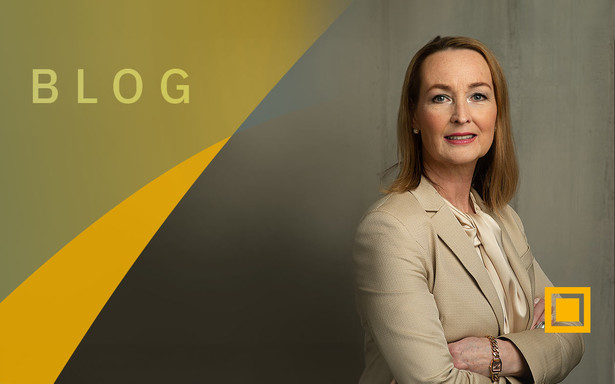Von Natascha de Raad
Lesedauer: 3 Minuten
The central hub of the Federal Republic of Germany, the Chancellery in Berlin, is undergoing a massive expansion. The focus is on the rising construction costs, which are now said to be around 800 million euros, and raises the question of the general necessity of the planned additional 400 offices. The reason given for the expansion is the continuous expansion of tasks. The discussion about the pros and cons is intermingled with many other aspects relating to excessive bureaucracy. For example, the increasing number of "commissioners" has come under fire. I would like to share some thoughts on this with you in today's BLOG 15.
Task-related expansion of the chancellor's office
As I find the comparisons so apt, here are just three more facts about the Chancellery. What is currently being built in Berlin is three times larger than the Élysée Palace in Paris, eight times more spacious than the White House and 10 Downing Street would fit into the new German headquarters ten times over. The Chancellery is not my topic today, but it is an example of what particularly concerns SMEs. We are being overwhelmed by a flood of new laws, regulations and directives and no matter what you call it, it always means time-consuming and personnel-intensive extra work. At the moment, for example, we are busy implementing the EU's CSRD requirements in terms of sustainability. Research, discussions, meetings, project groups - you know the drill!
What happens on a macro level is reflected in the microcosm of small and medium-sized companies. I mentioned the federal government's "representatives" at the beginning - and it's worth taking a closer look. To put it bluntly, there is a commissioner for everything. They are supposed to advise the federal government on specific topics and contribute their expertise to the political decision-making process. This is where the criticism begins, because many of these positions are occupied by members of the Bundestag and, as is well known, parliament has the task of controlling the government - a constitutional conflict. There are currently 43 commissioners and coordinators. From the well-known, such as the Commissioner for Eastern Europe or the Federal Commissioner for Data Protection and Freedom of Information, to the largely unknown, such as the Commissioner for Maritime Affairs or the Coordinator for Freight Transport and Logistics. The long list also includes a Federal Commissioner for Administrative Efficiency and a Federal Government Coordinator for Better Regulation and Bureaucracy Reduction. Any questions?
Let's leave the big stage in Berlin and move on to the companies of the highly praised and economically significant SME sector. Med-X-Press, with around 300 employees, has 12 safety officers alone. I don't want to question that at all, because in pharmaceutical logistics, safety is the number one priority when handling medicines. In the logistics of medicines, as in the pharmaceutical industry, a whole range of personal functions are defined in the Medicines Act or the Narcotics Act. That is correct and a good thing. Otherwise, as with all other companies, all legal regulations apply to us, such as occupational health and safety. Of course, companies that handle hazardous substances need a hazardous substances officer and, when it comes to transportation, a hazardous goods officer. A fire safety officer is essential and even better if they in turn train fire safety assistants to act calmly and deliberately in dangerous situations. And trained first aiders can be deployed for worst-case scenarios. This all makes sense, as quick and above all competent action is required in possible scenarios.
I have already mentioned some of the Med-X-Press representatives. But have you ever heard of a ladder officer? This is officially a "qualified person for the inspection of ladders and steps..." Once again, safety plays an important role in all areas and is also essential in the workplace. However, many regulations give the impression that they are purely an end in themselves. The "L' art pour l'art principle in occupational safety". At Med-X-Press, we have opted for a pragmatic solution when it comes to safety officers. In future, we will train our safety officers in parallel as supervisors. This will save manpower and costs. And then there is the "sprinkler attendant", perhaps we will also find a creative solution for this position in future.
What experience do you have with representatives in your company? Do you have any specific suggestions for reducing bureaucracy? Let's talk about it! As always, I look forward to your feedback. Get in touch with suggestions or criticism: blog@med-x-press.de


![[Translate to English:] Auszeichnung ecovadis [Translate to English:] Auszeichnung ecovadis](/fileadmin/user_upload/Footer/mxp-pharmalogistik_auszeichnung_ecovadis.png)